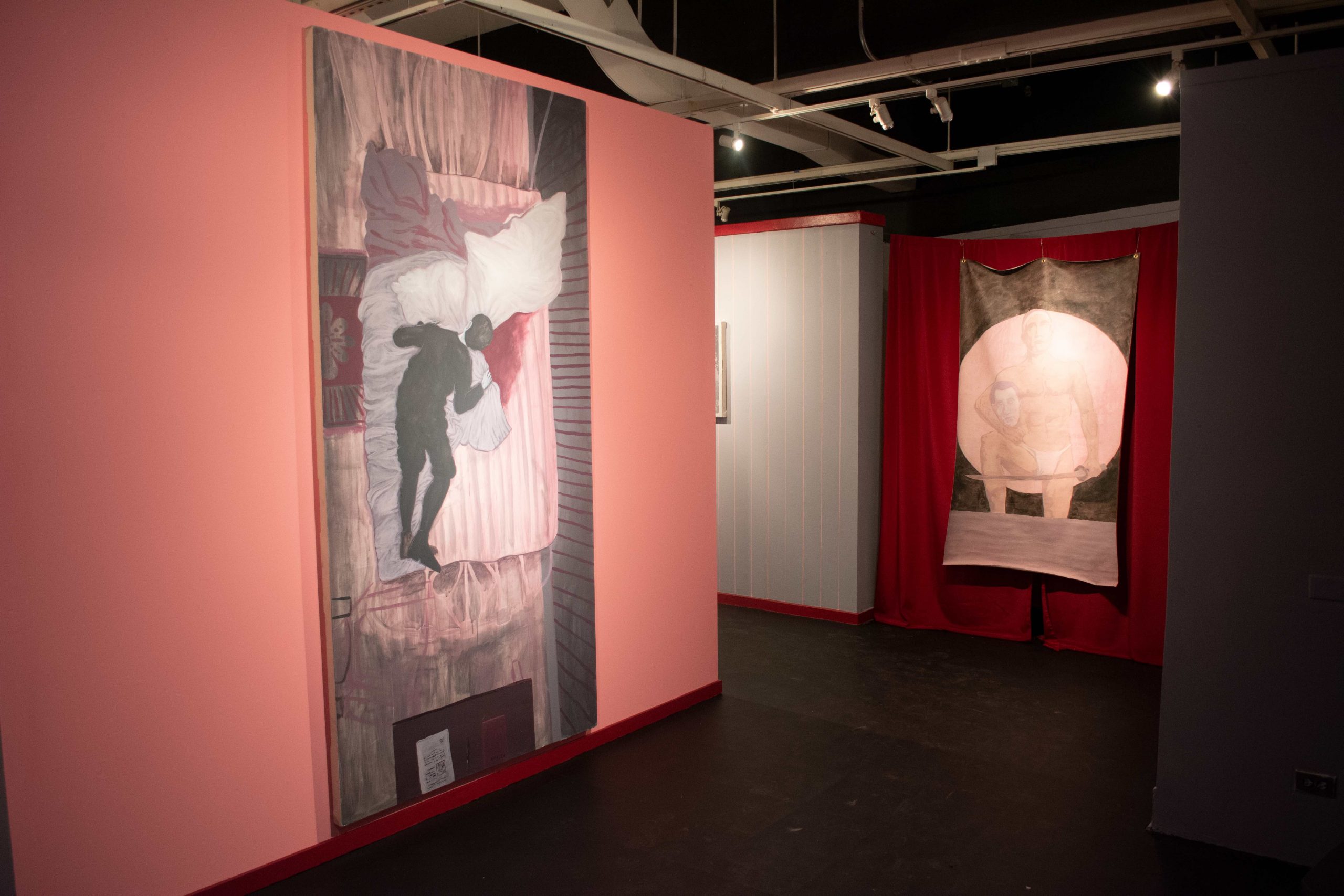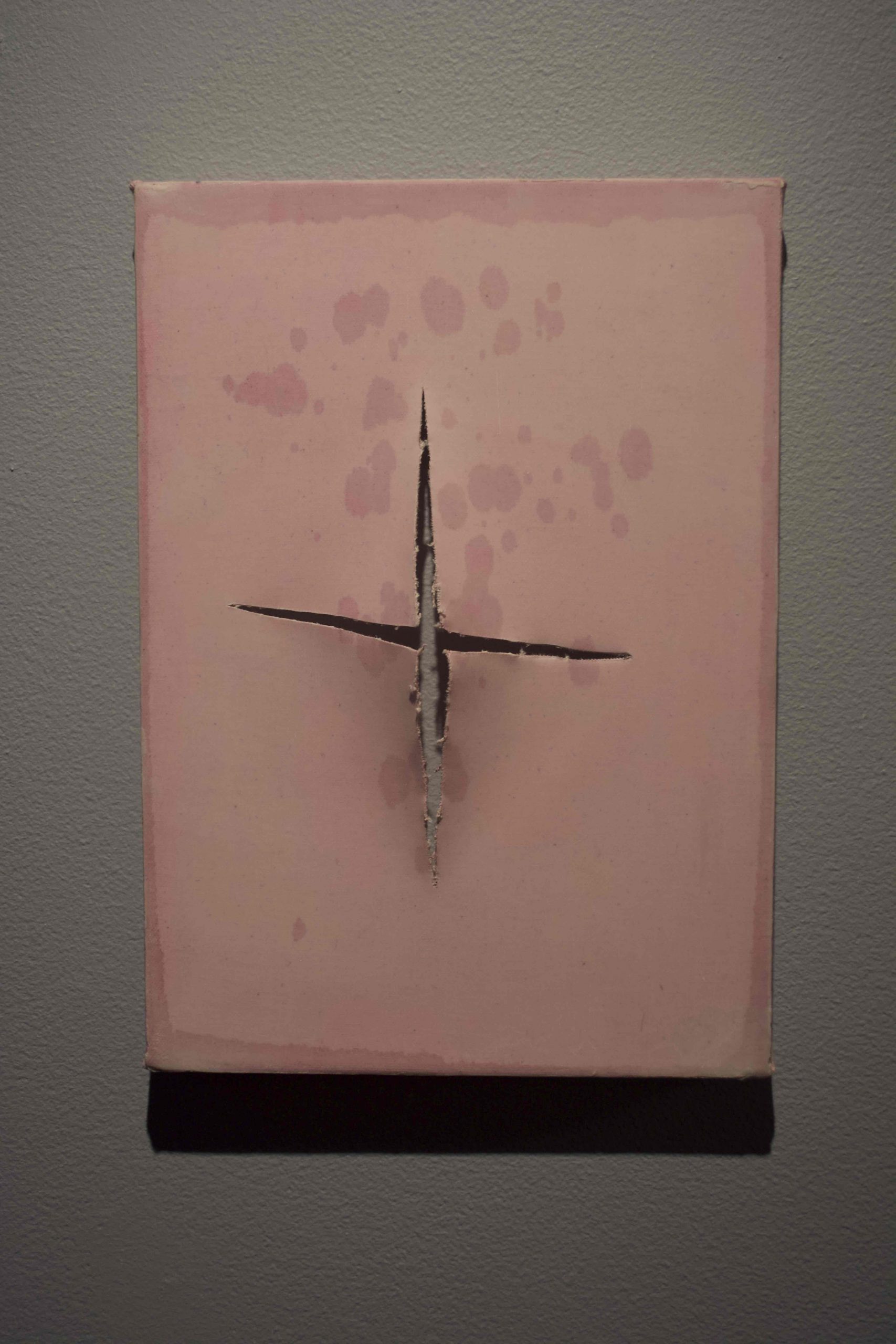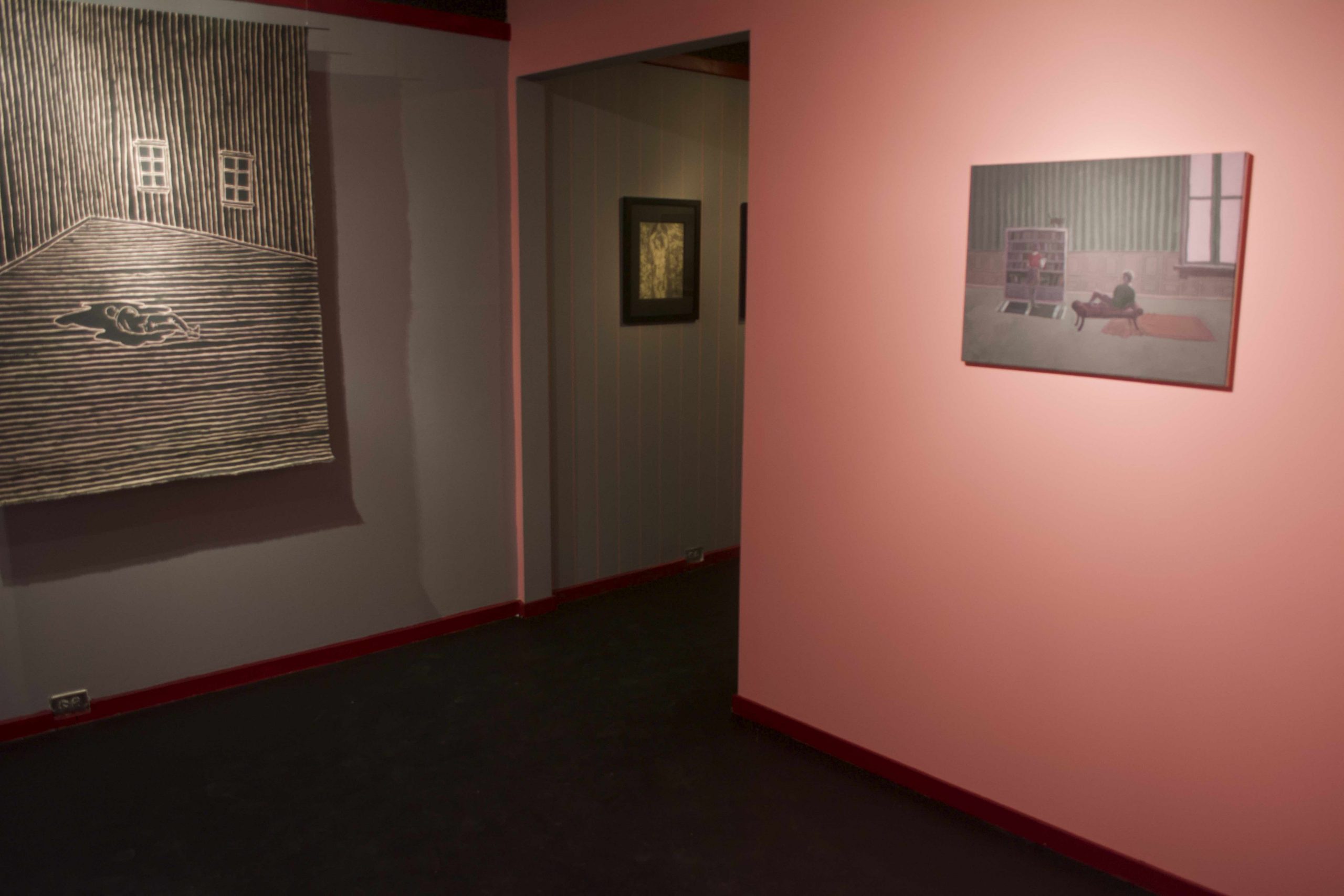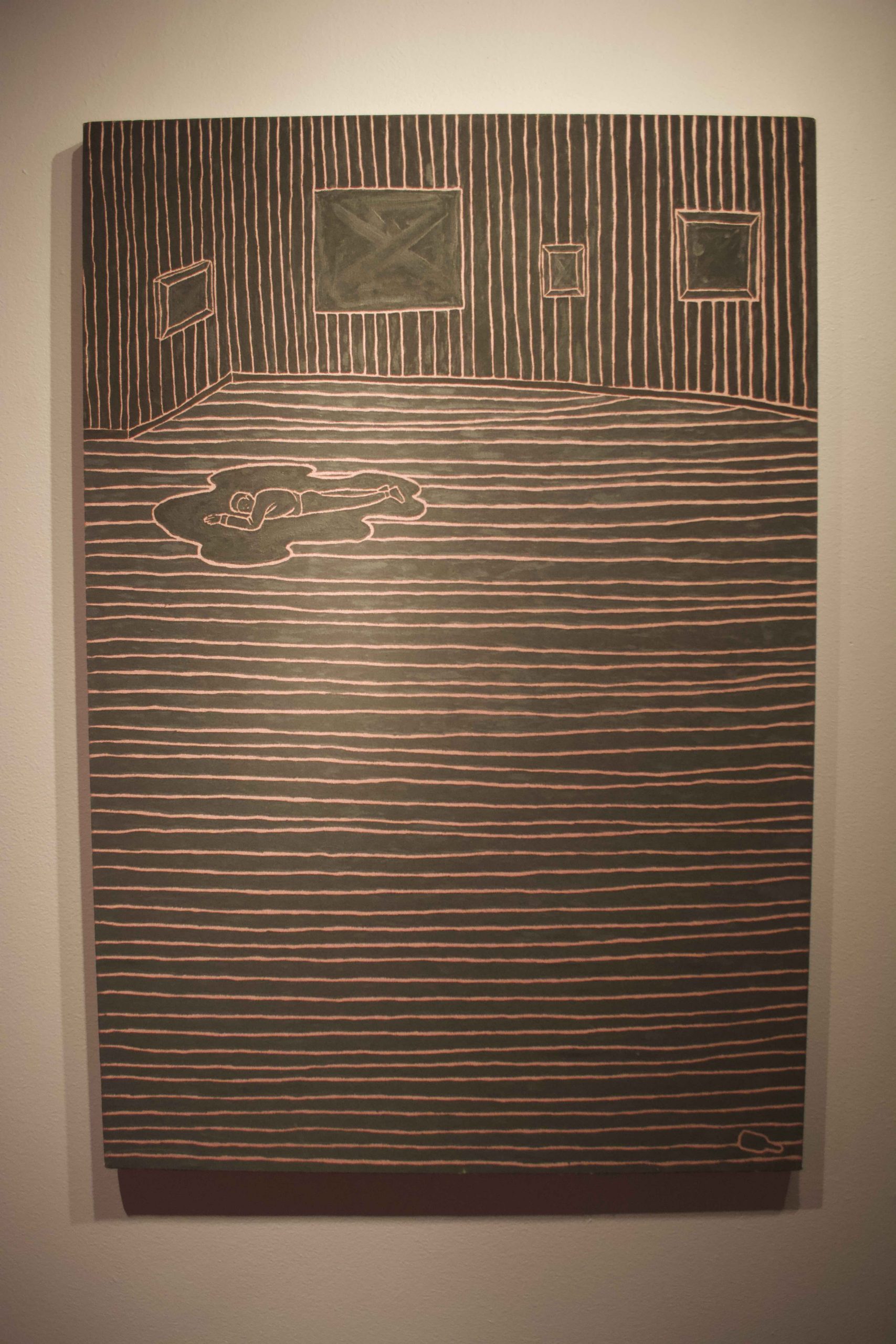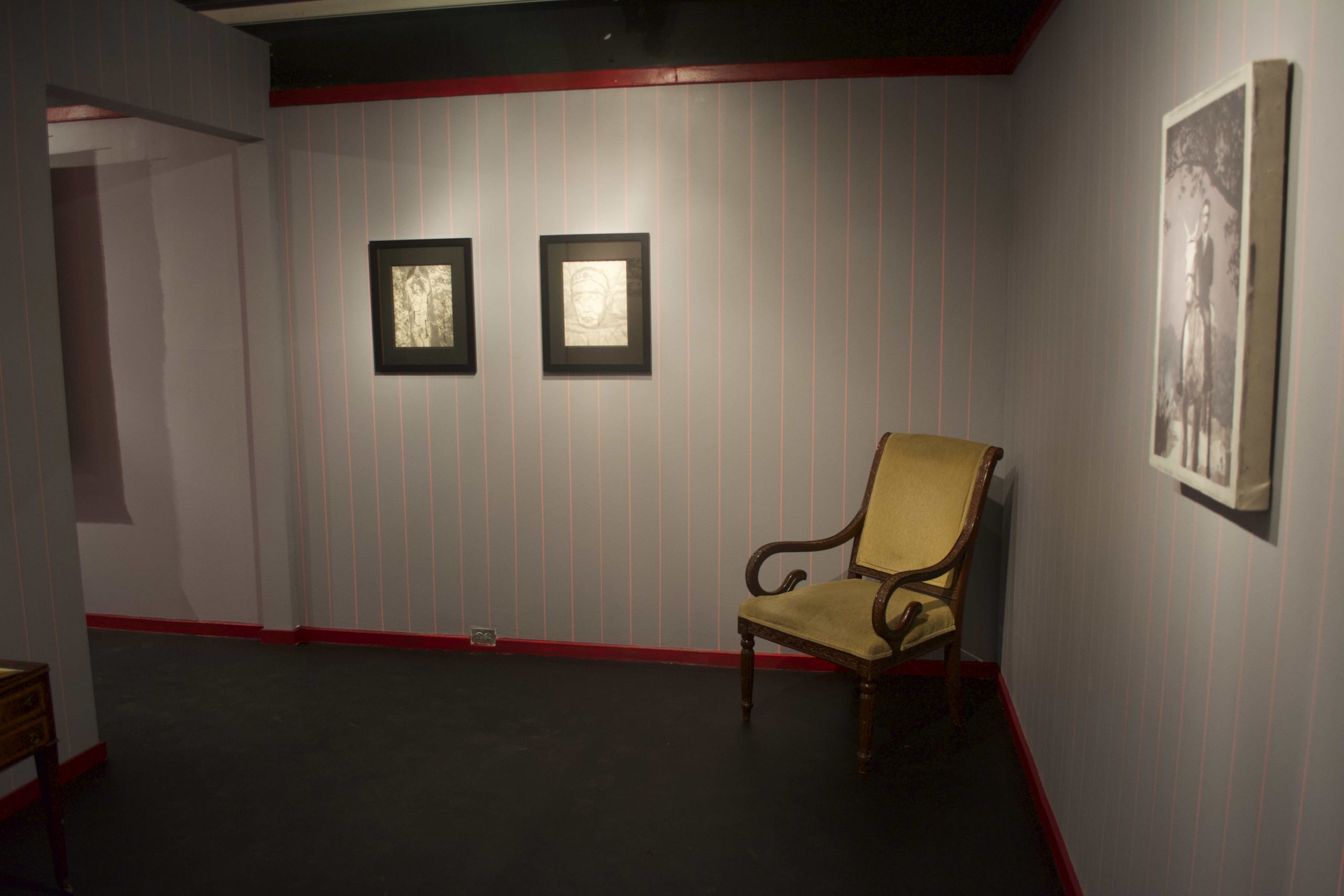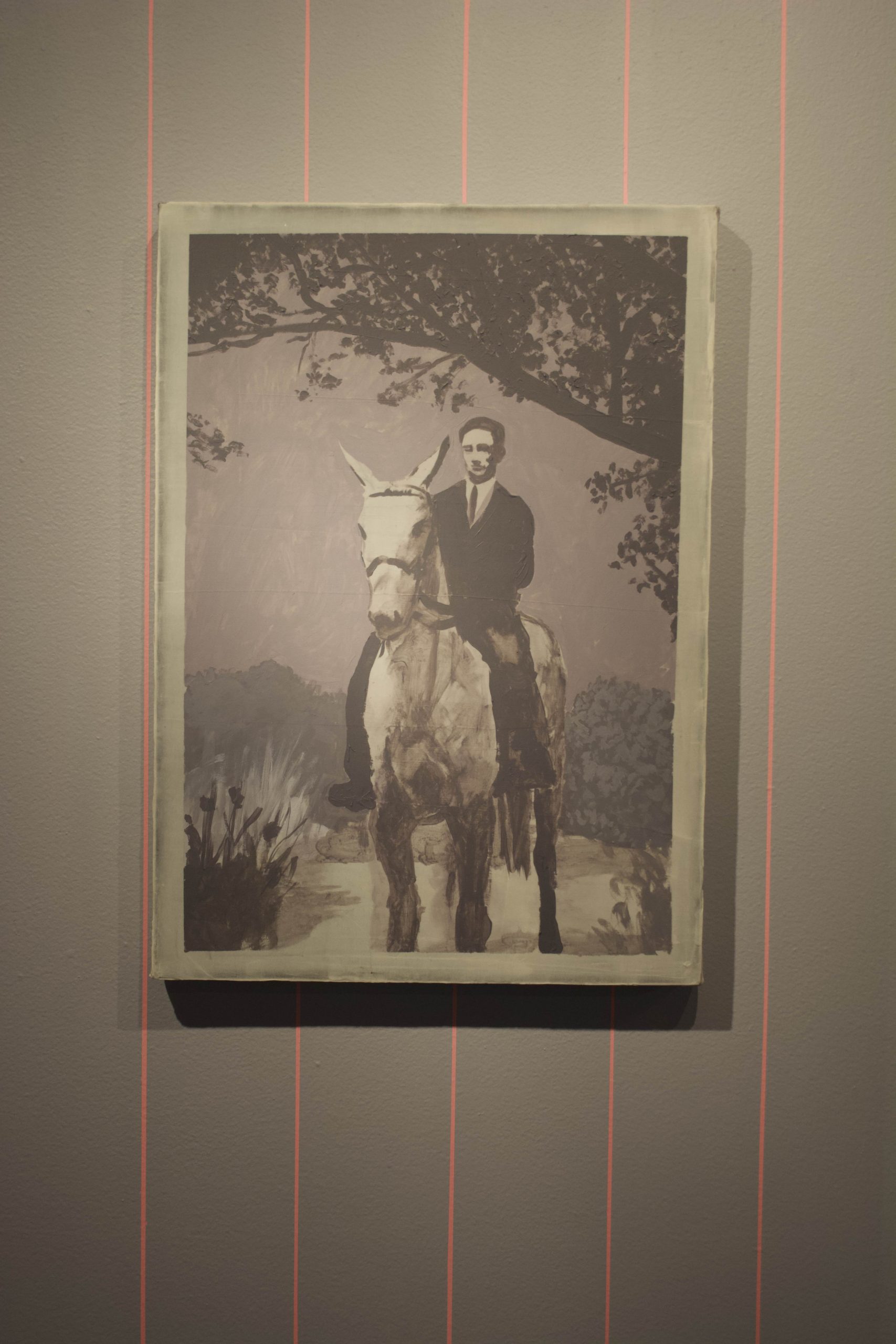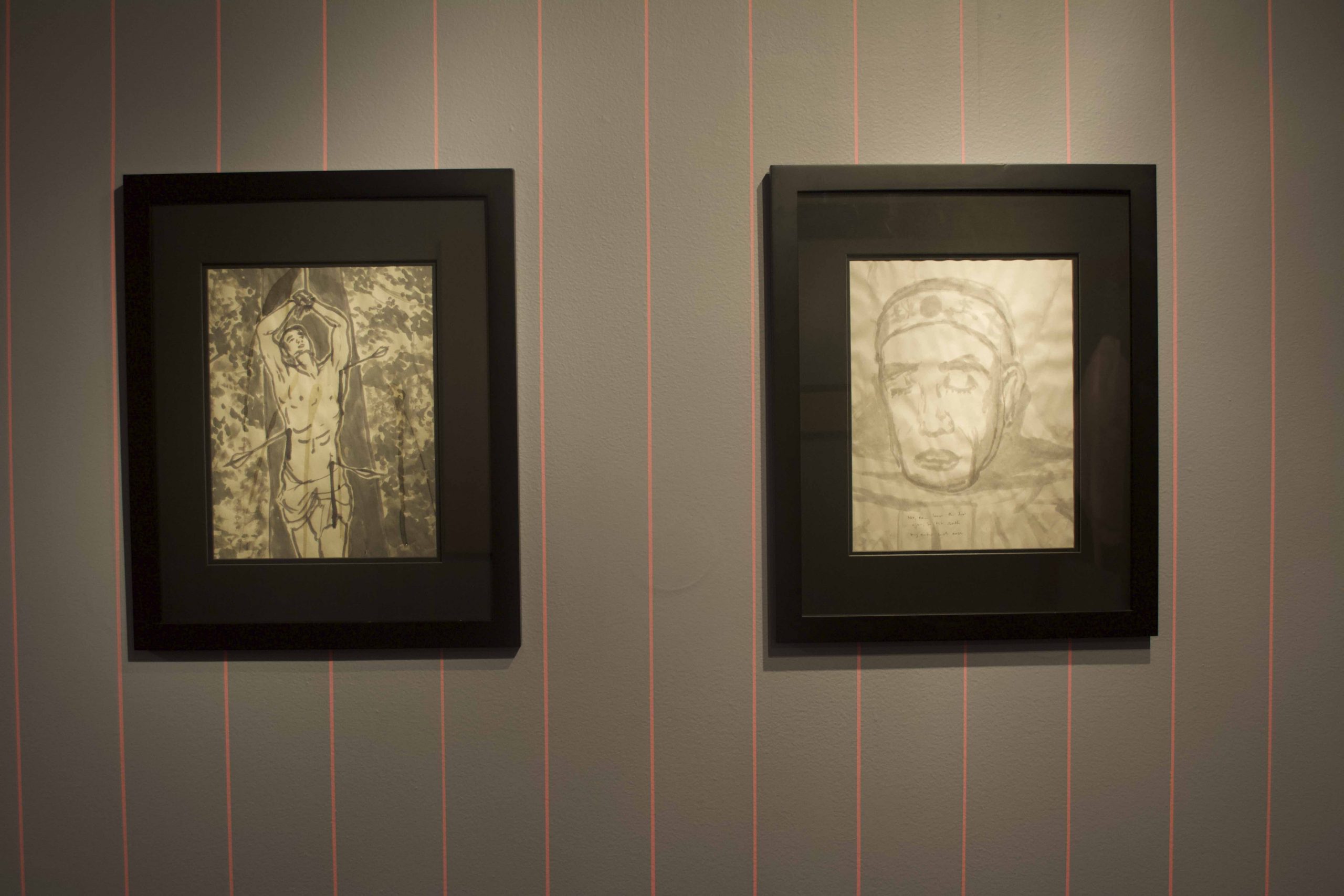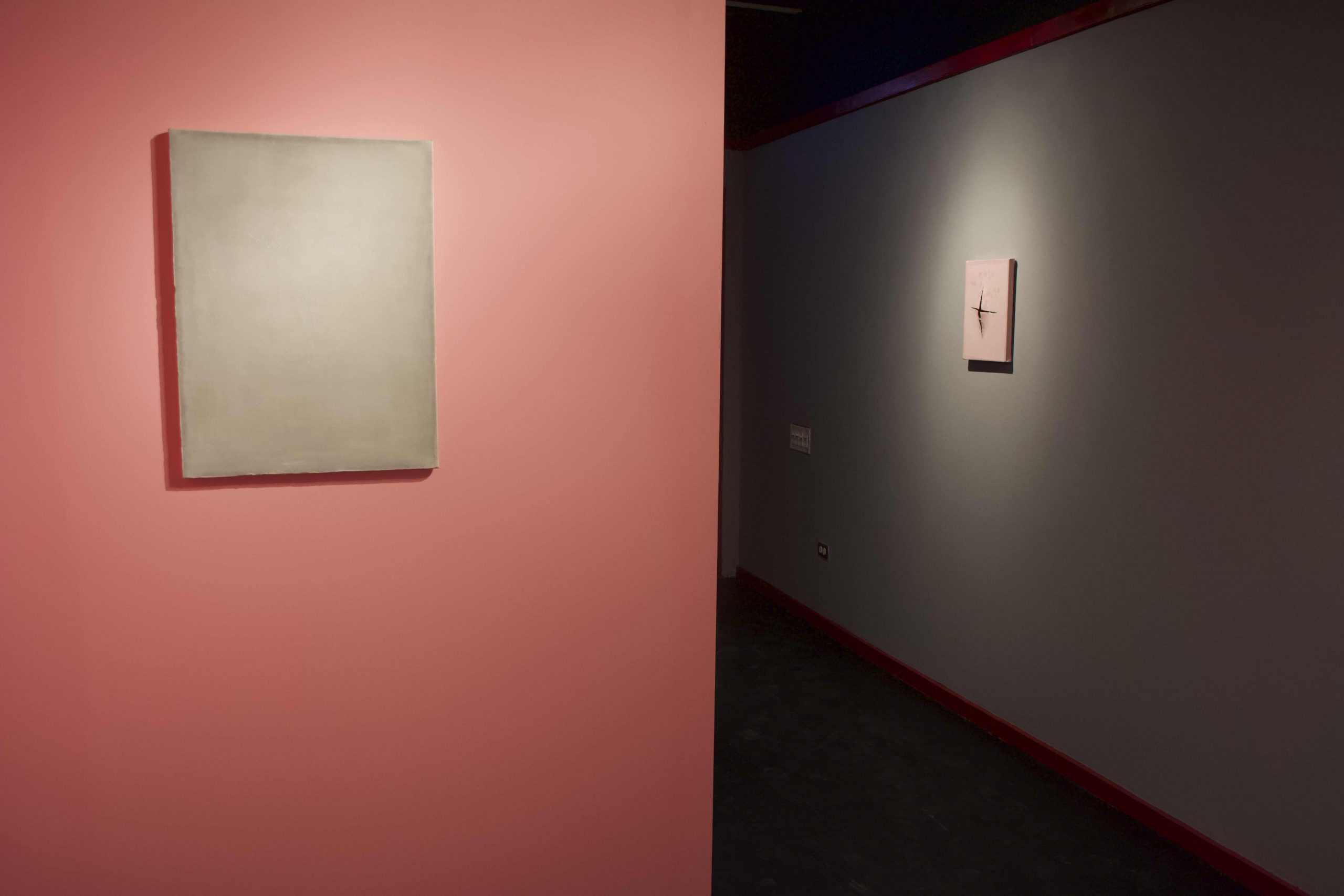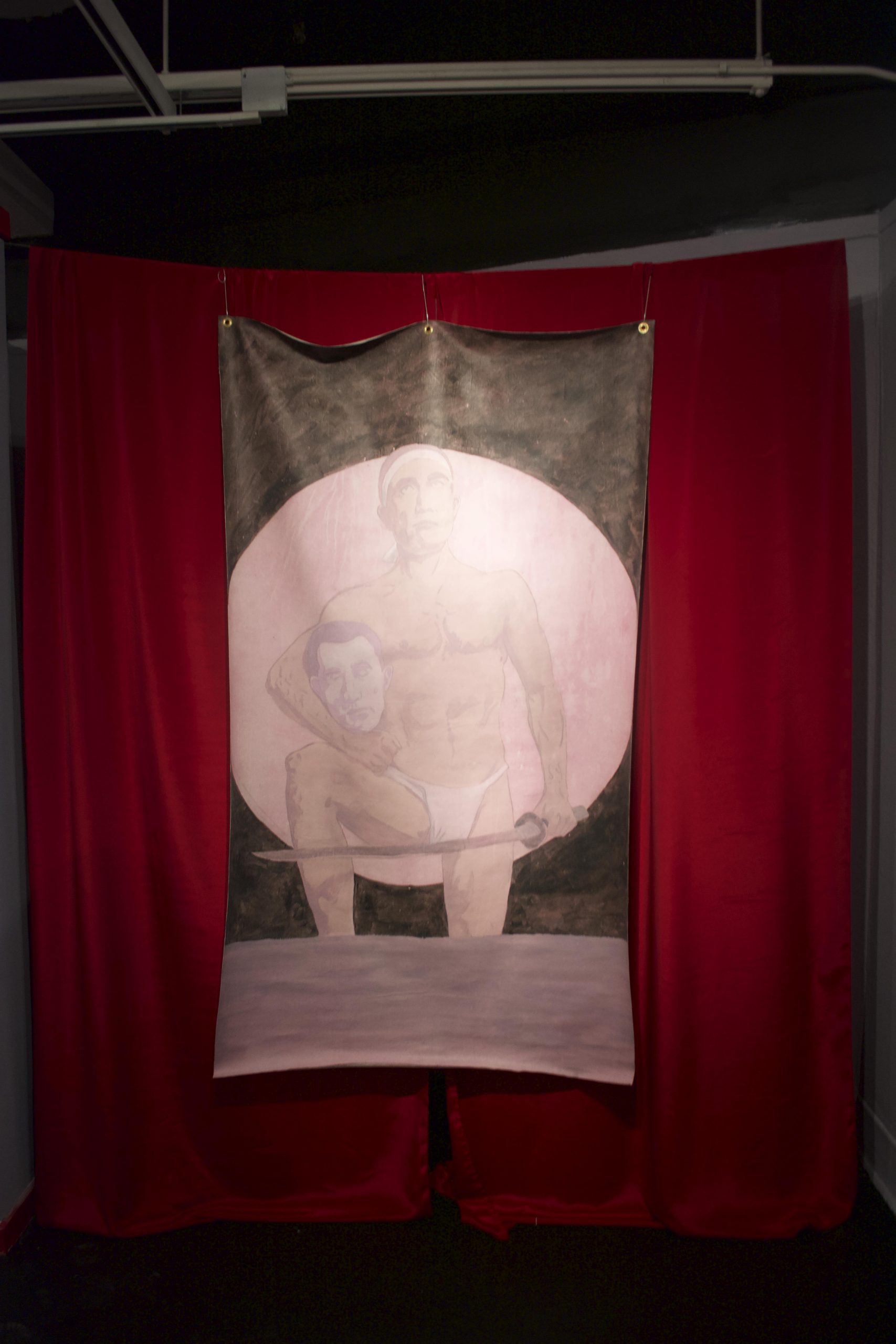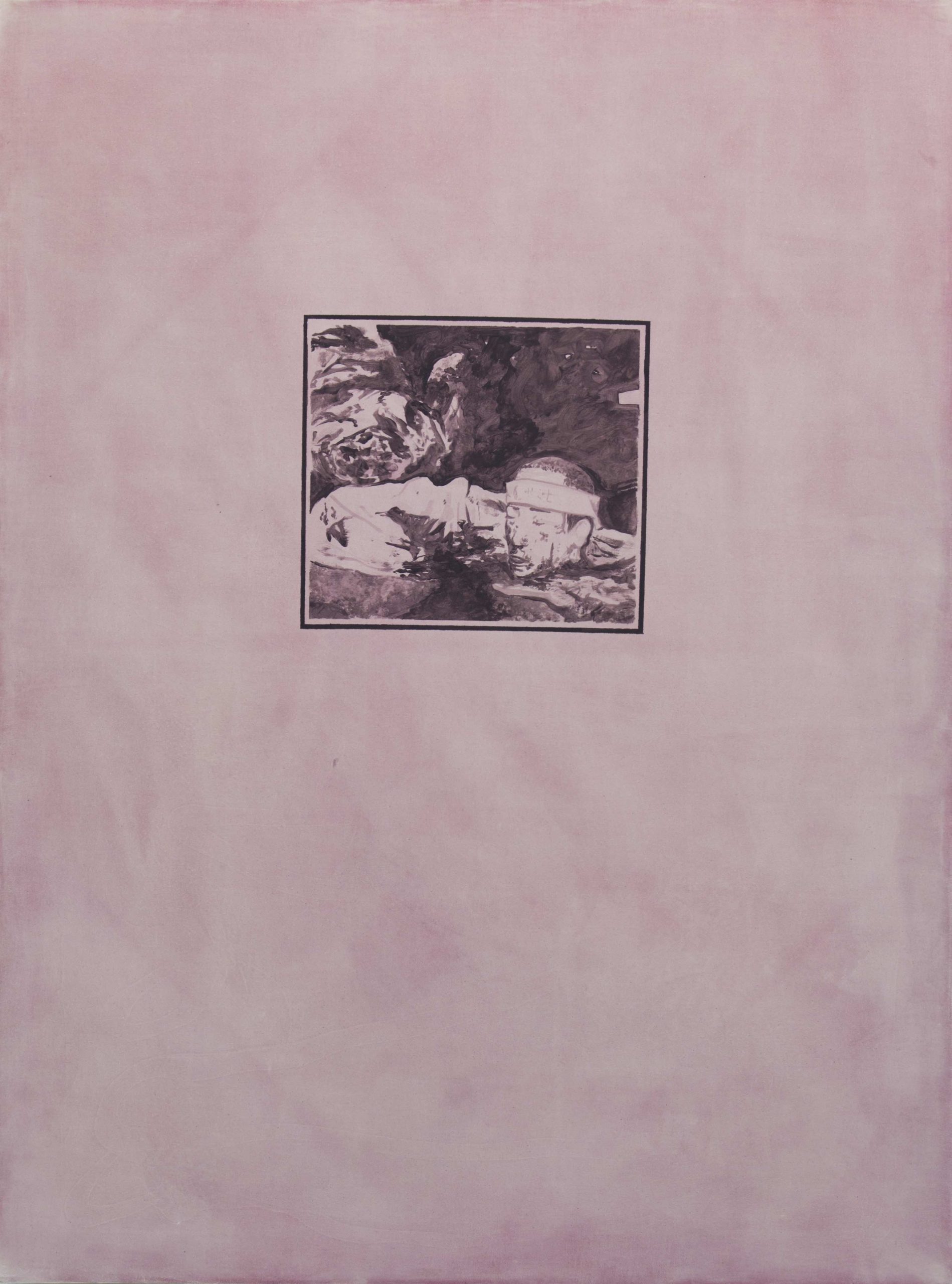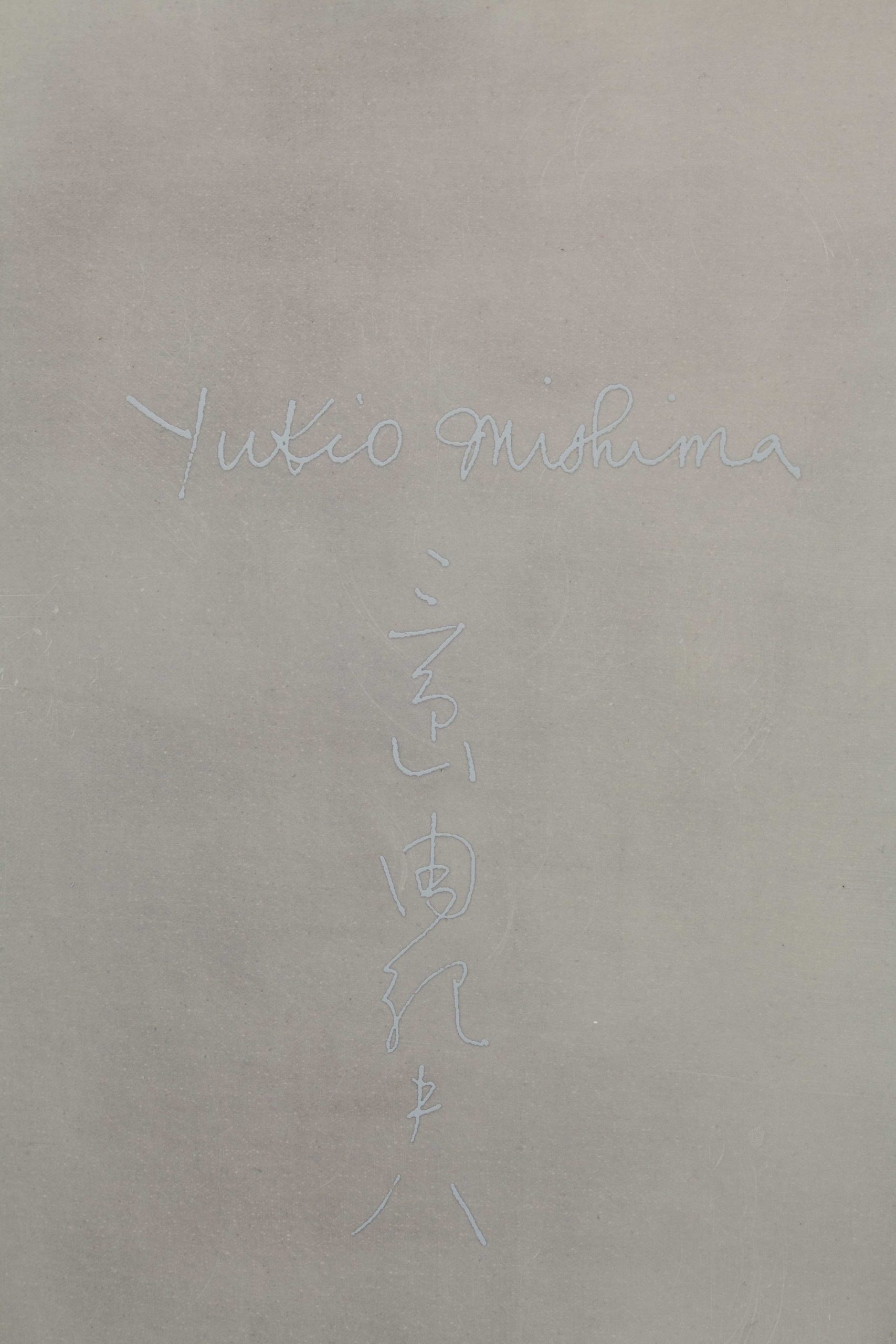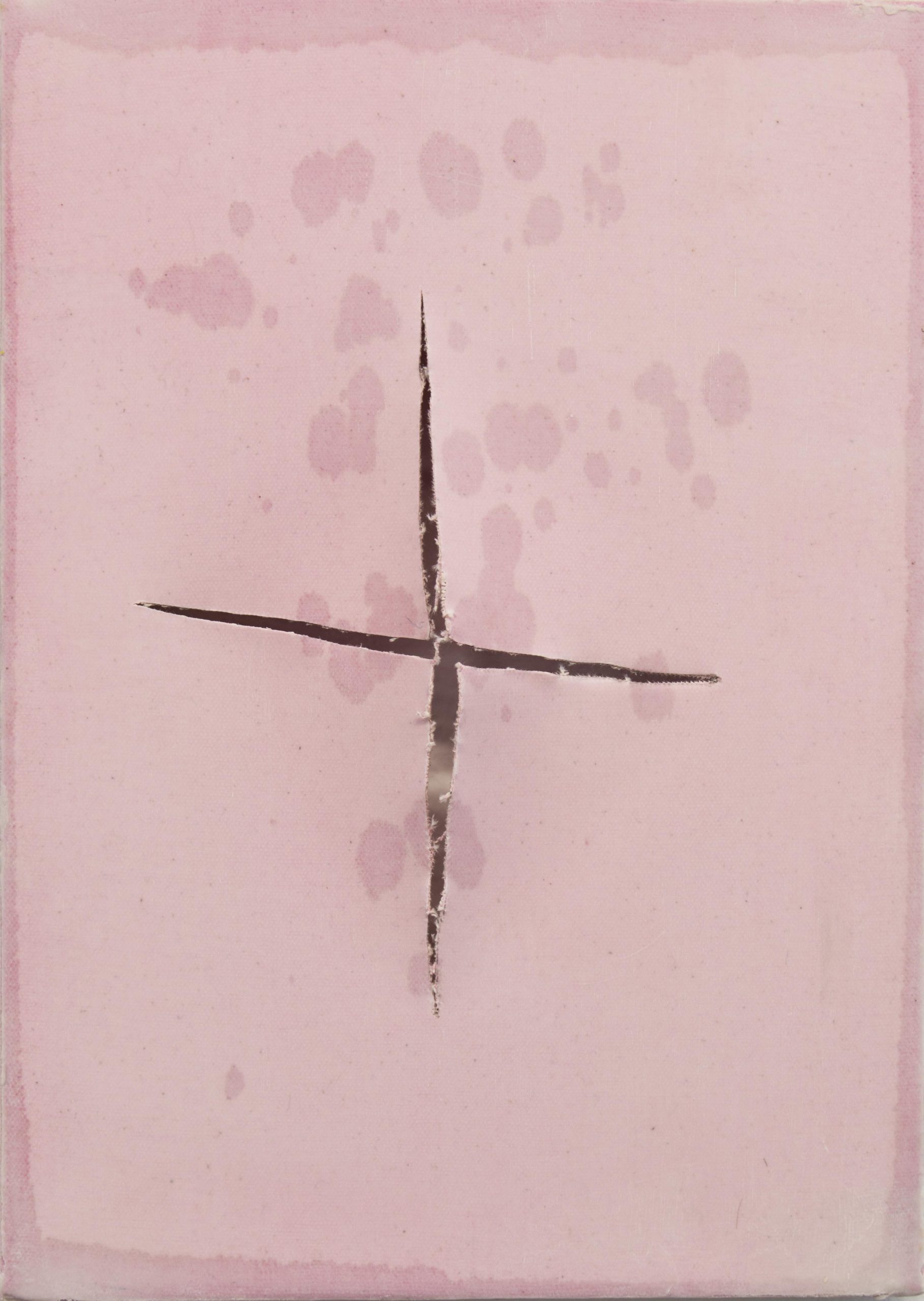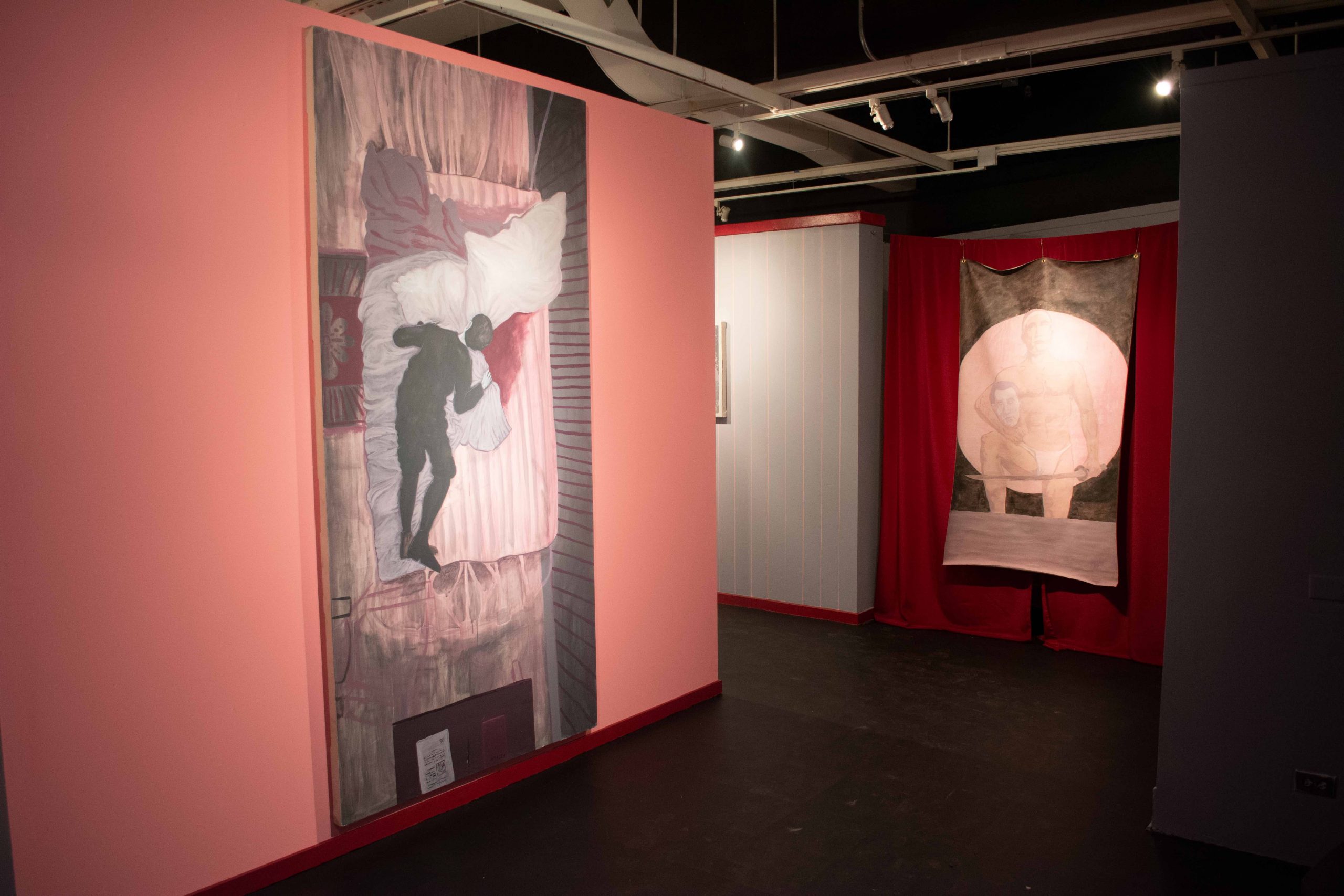The Dinner Was Ruined
Nicholas Amsel & Paul Smith
September 18 – October 15, 2015
Gallery X
Curator
Paul Smith
Contributing Artist
Nicholas Amsel
Exhibition Statement as Preserved in the SUGS/SITE Archives:
The Dinner Was Ruined is an exhibition of paintings. Like many of its kind, The Dinner Was Ruined contends with a weighty past by querying the moderinst roots of contemporary art. Classic themes – heroism, the bourgeois interior, psycholoism and obscurantism (not to mention the suffix itself) – are addressed in the most direct fashion. Nicholas Amsel’s (BFA 2015) work raises intriguing questions about the persistance of painting’s concerns. A common pretension of North Atlantic Modernsim is the eternality of its themes – so often divested of their material conditions. By coinciding Lucio Fontana’s cut canvas with a Japanese author’s ritual suicide, Amsel sugests that even the most stringent formal experiments have their roots in a romantic – and properly bourgeois – set of practices. It is no coincidence that the eighteenth and nineteenth centuries saw the ascension of the psychological novel alongside the commonly painted bourgeois interior. Psychoanalysis itself might be little more than parlour-room drama. The inteiror was heralded as a new universal to strive for – something held common to all (now articulated in the mass appeal and distribution of inteiror design blogs, magazines, and materials, as is the regulated psychic structure planned by Charcot and elaborated by Freud. How could we resist a little pedagogy or a little obsession? Half the show grasps the aformentioned tropes through murder mysteries and obsurantism. Later, the gallery itself performs the bourgeois interior through on idyllic modernist hero – Yukio Mishima, postwar writing great, failed revolutionary, fascist, and gay. He becomes the emblem of Amsel’s concerns, and the crucible into which modernism – and its presence today – is thrown. Mishima’s framed macho postures are set in soft lavenders and grays. This scheme is less a defanging than a nostalgic slight, realizing the same confusion of modern life Mishima focused on, obsessed with persona to the point of death, repressed and trying to reinstate the Japanese Emperor. Using Mishima as a object of obsession, is less about reflecting on the conditions of postwar Japan than it is highlighting (still modern) media by which we consume hallowed literary heros. By reverting to a specifically claustrophobic environment of the bourgeois inteiror concerned with the persistence of Heros and their strange (and often idealized) fixations on donesticit, The Dinner Was Ruined exhibtions those few tendencies that despite our best attempts at escape, persist in our fixations today. Like the obsessed boy parodied to great result, Amsel’s work fixates on faux-universals to the near exclusion of all else. But there’s always a little indeterminacy in the plot: is the man lying in a pool of blood, bile, or piss? Can Mishima fail to be a hero? Is death inscribed in the work, or is this just another overdetermined conceit? To quote Mishima on what might be any encounter with affect, “his own heart seemed to him ot be much like an arrow stripped of the fleshing white feathers that gave it direction.” It is this joy of the murder-mystery novel – not so far as a seduction, but still a drawing curiosity – that brings the work close to us. Touching lightly on hallowed subjects might be the best way to touch them at all: by falling prey to their attraction, and suspecting resistance to a given constant, we can find new ways to as the same old questions – but even better, to see why they’re still asked.
Programs
September 17, 4:00-6:00 PM
Gallery X
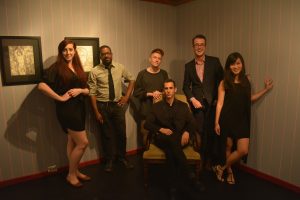
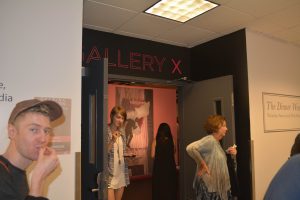
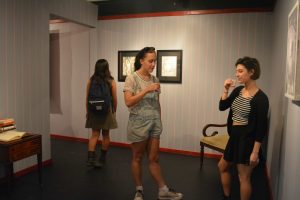
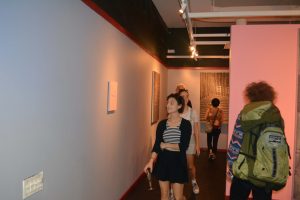
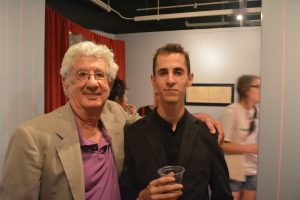
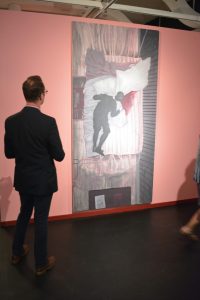
September 14, 2015, 6:30 PM
LeRoy Neiman Center Lobby
Program statement from the SUGs/SITE archive:
“Yukio Mishima is the modern hero in Paul Schrader’s 1985 Mishima: A Life in Four Chapters. His life becomes inextricable from his writing and his tragic end in failed revolution. Portending the exhibition The Dinner Was Ruined in SUGs (Student Union Galleries) Gallery X, the screening of Schrader’s film anticipates not just a color trend, but an irrepressible heroism, ven in failure, or painting. The narcissism, insolvency, and stuttering frustration of avant-garde conceits are in full view.”
This program was organzied by Nicholas Amsel and Paul Smith (curator).
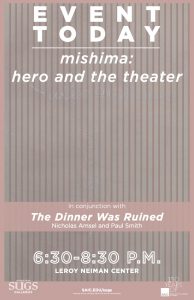
Exhibition Material
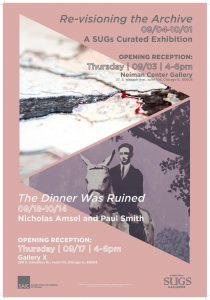
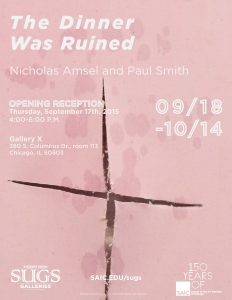
Paul Smith, Nicholas Amsel, and contributing authors created a collection of essays titled The Dinner Was Ruined.
Table of Contents:
Forward, Paul Smith
Mishima and Painting, Thomas Garcin
Clops, Devin King
In Conversation, Betany Porter & Paul Smith
Rooms, Danny Floyd
Coming Back Here, Again in the First Place, Mayra Rodrigeuz
Detectives, Paul Smith
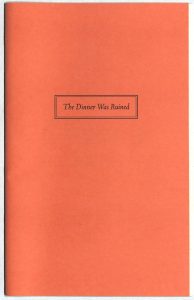
The Dinner was Ruined was featured in SAIC’s E + D Fall 2015 newsletters.
This newsletter is stored in SAIC’s digital collection.

